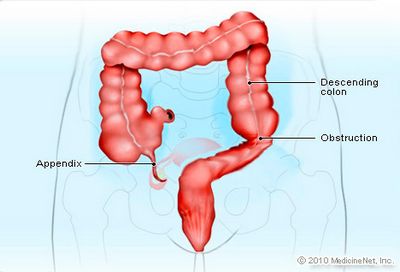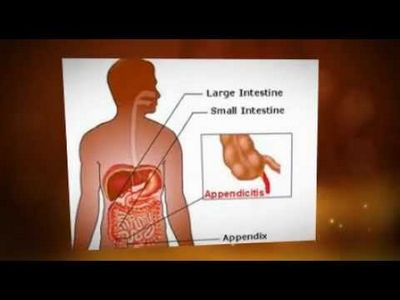The appendix is part of the digestive tract, which lies between the stomach and the duodenum.

The appendix lies between the duodenum and the jejunum, two small organs that aid in the absorption of nutrients from the food we eat. The two small organs connect to each other by a muscular organ called the ileocecal valve. The organ also has a pouch like structure and is found between the duodenum and the ileum.
The appendix is a tube-like organ about four to five inches long, located at the juncture of the large intestine and small intestine. It is a smooth, thin muscle-like tube about two inches wide. Normally, the organ lies between the duodenum and the ileum.
The purpose of the appendix lies in its ability to attach to the small intestine through the muscular ligation system. This system allows it to be attached to the small intestine with minimal pressure. However, when the appendix becomes overgrown or inflamed, the ligation system may not allow the organ to become attached to the small intestine. The result is the inability for the person with the enlarged appendix to absorb nutrients properly from the food we eat. Other experts think the appendix simply is a useless remnant of evolutionary past.
What does the appendix do? Well, if there is an overgrowth of the appendix, there may be an infection in it causing problems in the intestines and the rest of the digestive tract. There are many forms of cancer in the human body including rectal and breast cancer.
Sometimes, the symptoms of an infection in the appendix are quite similar to those of other diseases such as diabetes or heart disease because the immune system is functioning improperly causing the body to respond in a way that is out of balance with the normal digestive activity. When there is a bacterial infection in the body, you may have diarrhea, cramping, fatigue and vomiting.

If you have a viral infection, you may have fever and night sweats and fever blisters on the body. An enteric fever is one type of viral infection that often accompanies an overgrowth of the liver and pancreas.
What does the appendix do? The organ also functions to protect the intestines from other infections. The human body can produce mucus from the lining of the intestines but sometimes, it can not keep up with the job. This is when the mucus can enter the bloodstream.
What does the appendix do? One of its important roles is to absorb liquid and solid foods from the intestines into the body. It does this by moving the liquids and solids from the intestines into the stomach, through the stomach’s small intestines and into the colon, where they are further absorbed by the body. If the intestine is not able to absorb the liquid or solid foods, it will excrete them back into the bowels.
What does the appendix do? The organ is important to many people, so if you find yourself bloated or have abdominal pain or other symptoms that you think may be related to an overgrowth of the appendix, talk to your doctor about what does the appendix do.
Your doctor may prescribe antibiotics or other medications to treat your symptoms, depending on the underlying causes of your medical conditions. The doctor will examine your appendix with a special tool called a stethoscope to determine the cause of the problem. Once the cause is determined, the doctor will discuss how the infection can be treated. It is important for you to be clear about any underlying illnesses or medications you have that could be causing the infection, as this can be one of the main factors in treatment.
After the doctor treats the infection, the doctor will probably take some blood tests to determine if you have an underlying condition that is causing the symptoms. The doctor may give you an antibiotic, which can help prevent the infection from returning. to attack again.
What does the appendix do? If you want to know what does the appendix do, ask the doctor if they will let you know. about any treatments you can try to treat the problem.